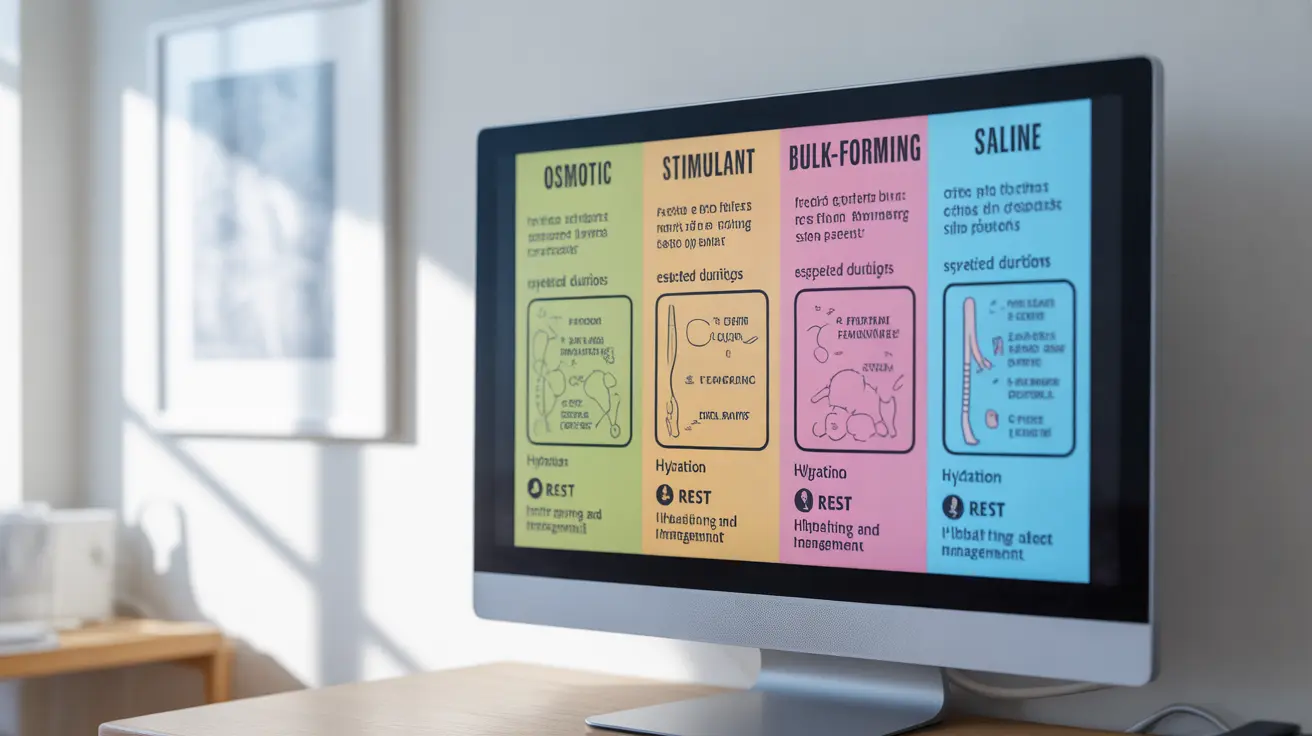Taking a laxative can provide relief from constipation, but it's important to understand how long the resulting diarrhea might last and how to manage its effects. While laxatives are generally safe when used as directed, knowing what to expect and when to be concerned can help you use these medications more effectively and safely.
This comprehensive guide will explain the typical duration of laxative-induced diarrhea, factors that might affect its length, and essential management strategies to help you stay comfortable and healthy.
Understanding Laxative-Induced Diarrhea
Laxative-induced diarrhea is a common and usually temporary side effect of using laxative medications. The duration and intensity can vary depending on several factors, including the type of laxative used and individual response to the medication.
Types of Laxatives and Their Effects
Different types of laxatives work in various ways, which can affect how long diarrhea lasts:
- Osmotic laxatives: Usually cause diarrhea for 24-48 hours
- Stimulant laxatives: Effects typically last 6-12 hours
- Bulk-forming laxatives: Generally produce milder effects lasting 12-72 hours
- Saline laxatives: Usually cause diarrhea for 12-24 hours
Expected Duration of Laxative-Induced Diarrhea
Most people experience diarrhea for about 6-12 hours after taking a laxative, though this can extend up to 24-48 hours in some cases. The duration largely depends on the type and dosage of the laxative taken, as well as individual factors such as metabolism and overall gut health.
Factors Affecting Diarrhea Duration
Several factors can influence how long diarrhea persists after taking a laxative:
- Dosage taken
- Type of laxative used
- Individual metabolism
- Underlying health conditions
- Dietary factors
- Hydration status
- Other medications being taken
Warning Signs and When to Seek Medical Help
While temporary diarrhea is expected after taking a laxative, certain symptoms warrant medical attention:
- Diarrhea lasting more than 3 days
- Severe abdominal pain
- Blood in stool
- Signs of dehydration
- Fever above 101.5°F (38.6°C)
- Severe weakness or dizziness
Managing Laxative-Induced Diarrhea
To minimize discomfort and prevent complications, consider these management strategies:
- Stay well-hydrated with water and clear fluids
- Consume electrolyte-rich beverages
- Eat bland, easy-to-digest foods
- Avoid caffeine and alcohol
- Rest as needed
- Monitor symptoms carefully
Frequently Asked Questions
How long does diarrhea usually last after taking a laxative?
Typically, diarrhea lasts between 6-12 hours after taking a laxative, though it can continue for up to 24-48 hours depending on the type and dosage of laxative used.
What factors can affect how long diarrhea continues after using a laxative?
The duration can be affected by the type of laxative, dosage, individual metabolism, underlying health conditions, diet, hydration status, and other medications being taken.
When should I seek medical help if diarrhea persists after taking a laxative?
Seek medical attention if diarrhea lasts more than 3 days, is accompanied by severe abdominal pain, blood in stool, signs of dehydration, high fever, or severe weakness.
What are the common symptoms associated with laxative-induced diarrhea?
Common symptoms include frequent loose stools, mild abdominal cramping, increased gas, temporary bloating, and possible dehydration if fluid intake isn't adequate.
How can I manage diarrhea and prevent dehydration after taking a laxative?
Stay well-hydrated by drinking plenty of water and clear fluids, consume electrolyte-rich beverages, eat bland foods, avoid caffeine and alcohol, and rest as needed. Monitor your symptoms and maintain good hand hygiene.




